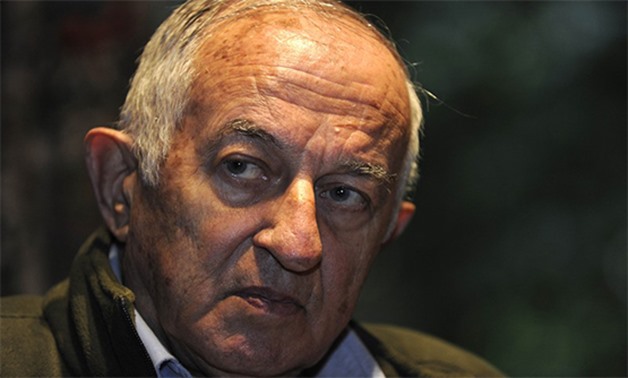
Spanish writer Juan Goytisolo — AFP
MADRID - 5 June 2017: Veteran Spanish anti-Franco writer Juan Goytisolo, one of Spain's most celebrated writers of the postwar period, died Sunday aged 86, his agent said.
The novelist and essayist, who won the Cervantes Prize -- Spain's version of the Nobel -- in 2014, died in Marrakesh, Morocco, "surrounded by his loved ones," said the Carmen Balcells agency in a statement.
A member of Spain's Royal Academy, he had suffered from health problems for some months, including a fractured hip which had forced him to use a wheelchair
He was born in 1931 in Barcelona to a bourgeois family. His mother was killed when he was seven, in an air raid by the forces of right-wing General Francisco Franco during the civil war.
He went into exile in France due to his "total disagreement" with the Franco regime and the censorship it imposed.
He flirted with the communist party during the late 1950s, which brought him a four-month jail term, but he was inspired more by his opposition to the Franco dictatorship than by proletarian conviction.
He began writing at the age of 11, encouraged by his uncle Luis, and his first novels were published after attending law school.
In "Las Afueras" (1958) and "Las Mismas Palabras" (1962) he displayed literary traits that would appear in later works: the importance of dialogue, the absence of a main character, multiple points of view.
This complexity was again in evidence in his tetralogy "Antigonia", his most celebrated work. Set in the youth culture of Barcelona in the 1950s and 1960s, it is made up of "Recuento" (1973), "Los Verdes de Mayo Hasta el Mar" (1976), "La Colera de Aquiles" (1979) et "Teoria del Conocimiento" (1981).
Goytisolo explores life in all its facets, from childhood to death, in a complex mixture of memories, introspection and reflections on the work of a writer.
"I never stopped evolving a more complex style, formed from multiple perspectives and simultaneous plots," he said.
The recipient of several awards in Spain, he also published more experimental works in the 1980s and 90s such as "Estela de Fuego que se aleja", "Estatua con palomas", "La Paradoja del ave migratoria" up to his last novel "Cosas que Pasan".
But few of his works have been translated and he never achieved worldwide recognition, something that he never got over.
He once said that France's Nobel literature laureate Claude Simon "wrote that the three greats novels of the 20th century were (Proust's) 'Remembrance of Things Past', 'The Alexandria Quartet' (by Lawrence Durrell) and 'Antigonia'. That is some compensation."
He has railed against the decline of an era of great novels, "those that provoke energy in the reader, and up to a certain point transform their relationship with the world and themselves," in favour of best-sellers.
He believes this is a "long process which has only just begun" and is inevitable in "a society turned toward ... television, the telephone, and the computer."

Comments
Leave a Comment